Introduction: In this article – on the anniversary of the sinking of the “Titanic” – Gena Philibert-Ortega wonders how the disaster impacted her ancestors. Gena is a genealogist and author of the book “From the Family Kitchen.”
One of the aspects of family history that researchers are encouraged to include in their timelines and narratives is historical events. Including well-known historical events helps researchers (and their family) better understand their ancestor in the era they lived in. Researchers might put together a timeline with historical events intermixed with their ancestral families’ biographical events.
In some cases, adding historical events that family are familiar with may be a good idea because it provides much needed context. Knowledge of historical events might also open up additional records or photographs that can be added to our family history.
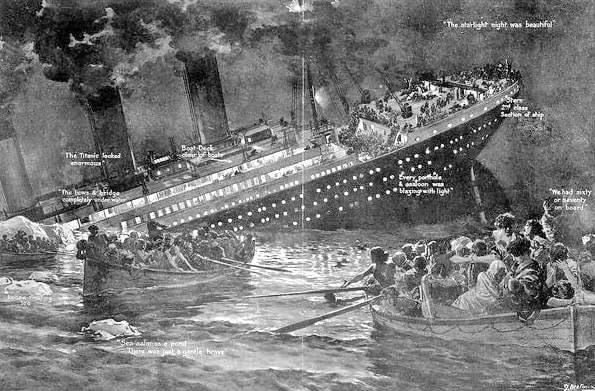
As an example, in the past I’ve written about my great-grandparents and the 1933 Long Beach (California) earthquake. Knowing more about that earthquake allows me to write a story incorporating what I know of my great-grandparents’ experience and the overall historical information of the earthquake.
But the question is, did all historical events impact our ancestors? What should be added to our timelines and family stories and what shouldn’t be? It can be tempting to add large scale historical events that we are aware of, but those events may not really relate to our family histories.
For example, consider the ocean liner Titanic, the “unsinkable” ship that hit an iceberg and sank in 1912, with about 1,500 people losing their lives. Websites, books, and movies are dedicated to the subject. It’s a historical disaster that most Americans are aware of. Was the Titanic an important event in your ancestor’s life? Maybe, but maybe not.
Titanic in the News
Today we have access to all kinds of media that commemorate the sinking of the Titanic. A look back at GenealogyBank’s blog articles about Titanic topics (see links at the end of this article) makes it clear that as a historical topic there is much to study. But was it that important to your family who were alive on 14-15 April 1912?
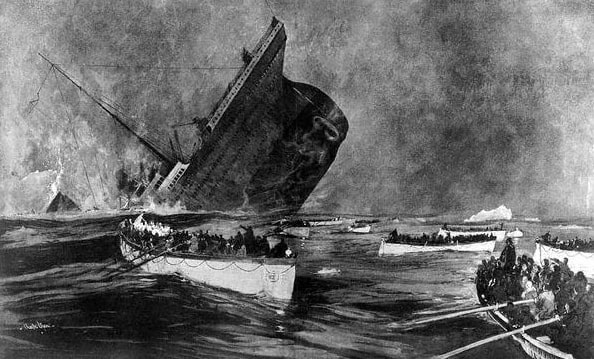
Obviously, there are people for whom the Titanic story should be incorporated. This can be done with historical newspapers, photographs, and histories. It goes without saying that it was a tragic, life-defining event for the survivors of the disaster. The family, friends, acquaintances, and coworkers of the passengers and crew were impacted. Those who had a close relationship to the Titanic, such as the employees of the White Star Line and those responsible for designing and building the ship, were impacted.
But what about everyone else?
For those living in New York City, news of the Titanic was everywhere, especially in the newspapers. That makes sense. For those in New York City, it was “local news.” The Titanic had New York City residents onboard, as well as family and friends waiting for the liner to dock.
Although it might have been front page news in other cities, it wasn’t the main story for all newspapers everywhere in the country.
I wondered what my maternal family would have known about the Titanic. At the time of the sinking, I had family living in a small town in Arizona. A local newspaper there, the Holbrook News (billed as the official newspaper of Navajo County, which was the county they lived in), was published every Friday.
The Titanic sank on a Monday; the following Friday, 19 April 1912, this is what the front page looked like.
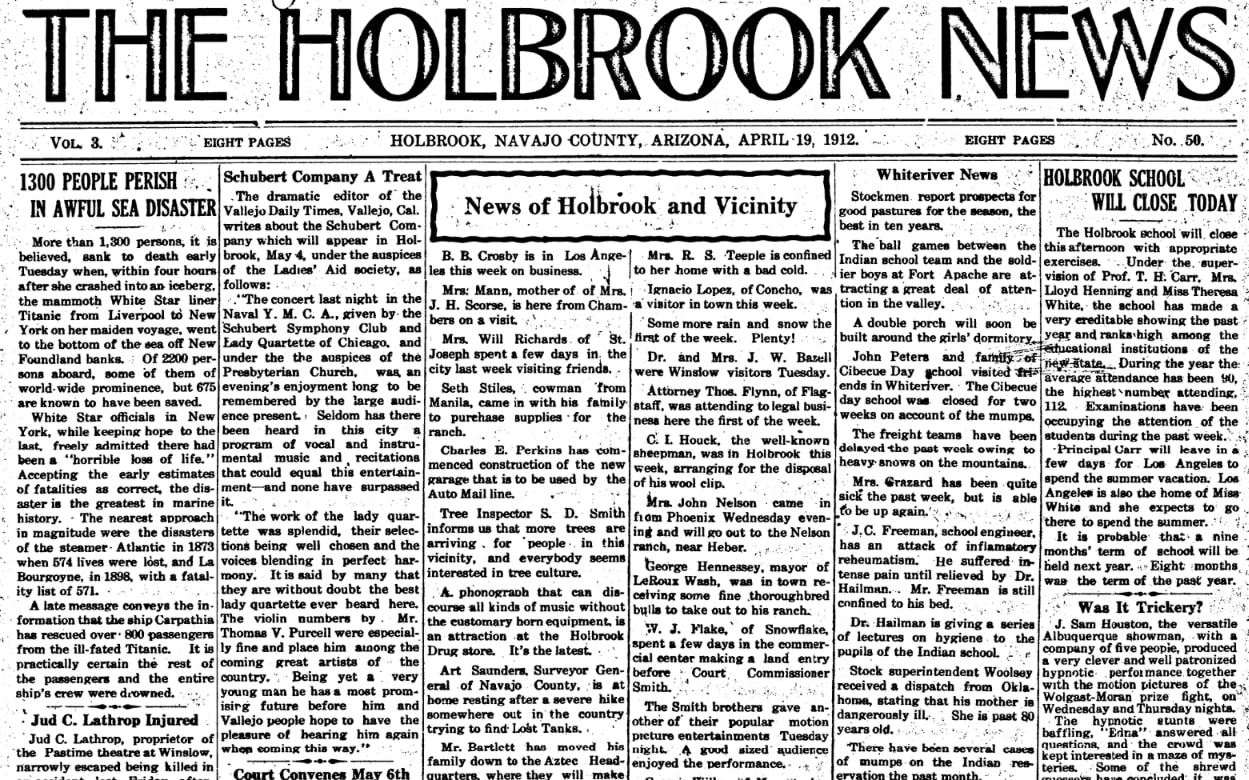
The first column’s headline states: “1300 People Perish in Awful Sea Disaster.” The entire article is only three paragraphs and doesn’t even include the word Titanic until the 6th line. The font size of this headline is no bigger than the headline on the sixth column that states: “Holbrook School Will Close Today” – not because of the Titanic, but because it was the start of summer vacation.
This indicates that unless my family read a larger city newspaper, they may not have heard about the sinking at all (radio broadcasts did not begin until the 1920s). It most likely did not impact their lives.
It appears that the Titanic was not mentioned again in my Arizona family’s local newspapers until May, when a notice announced that a picture show was played at the Winslow (Arizona) Opera House including “stereoptican views of the Titanic disaster.” It appears my family’s knowledge of the Titanic may have been little to none.
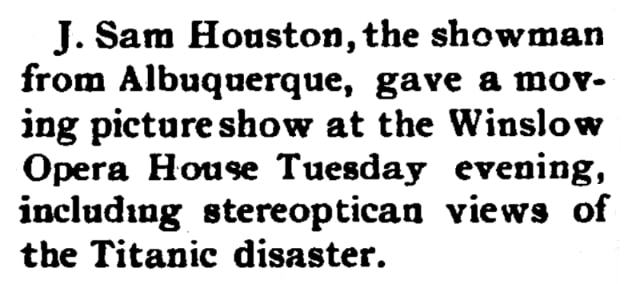
By the time the Titanic disaster became more well-known, such as with the 1958 movie A Night to Remember, it would have been recent history and not news.
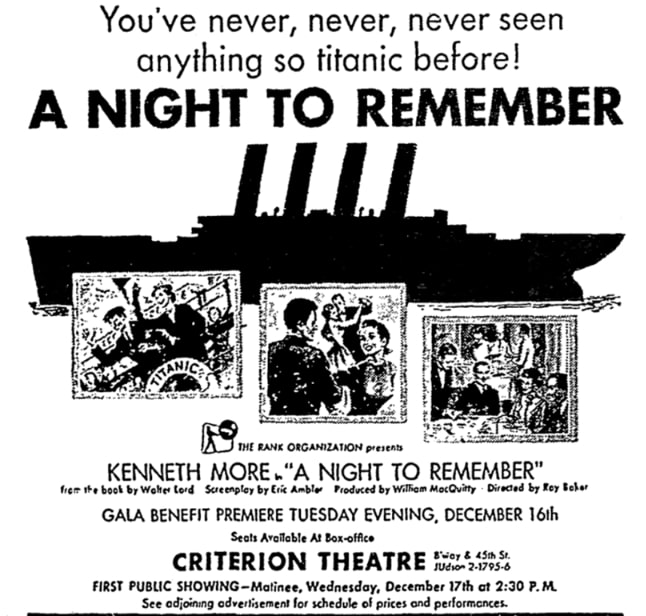
Not All History Is Relevant Family History
As we consider historical events that may have impacted our ancestors, it’s important to carefully consider what historical events would have directly affected them.
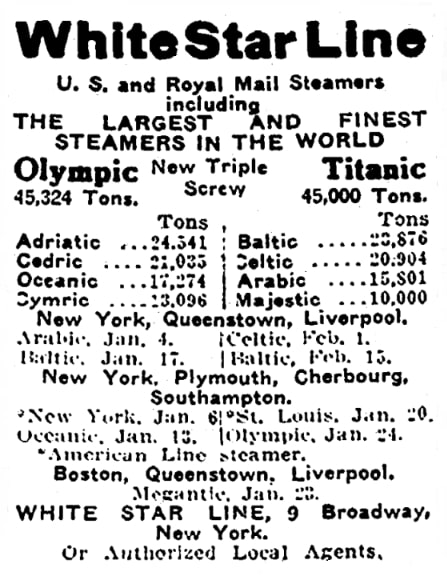
Although East Coast newspapers had printed information about the Titanic before the actual disaster, such as the advertisement shown above, and certainly many newspapers reported on the Titanic after it sank, it’s important to remember that the disaster was not “big news” for everyone.
Throughout the country, some small local newspapers barely mentioned it. Just as we aren’t personally impacted by some news in today’s world, neither were our ancestors impacted by everything that happened – or even, in the days before radio, aware of it. Yes, some large-scale historical events touched our families, but not all.
How did your family’s local newspaper cover the Titanic’s sinking, and do you think your ancestors were affected by it?
Explore over 330 years of newspapers and historical records in GenealogyBank. Discover your family story! Start a 7-Day Free Trial
Note on the header image: “Titanic Sinking,” by Willy Stöwer, 1912. Credit: Wikimedia Commons.
Titanic Articles:
- Anniversary of the Sinking of the ‘Titanic’
- Amazing Survival Stories of Last Moments on the ‘Titanic’ Ship
- Tracing ‘Titanic’ Genealogy: Survivor Passenger Lists & More
- Eating on the ‘Titanic’: Massive Quantities of Food on the Menu
- Two Crew Members Who Survived the ‘Titanic’
- 3 Facts You Didn’t Know about the ‘Titanic’
